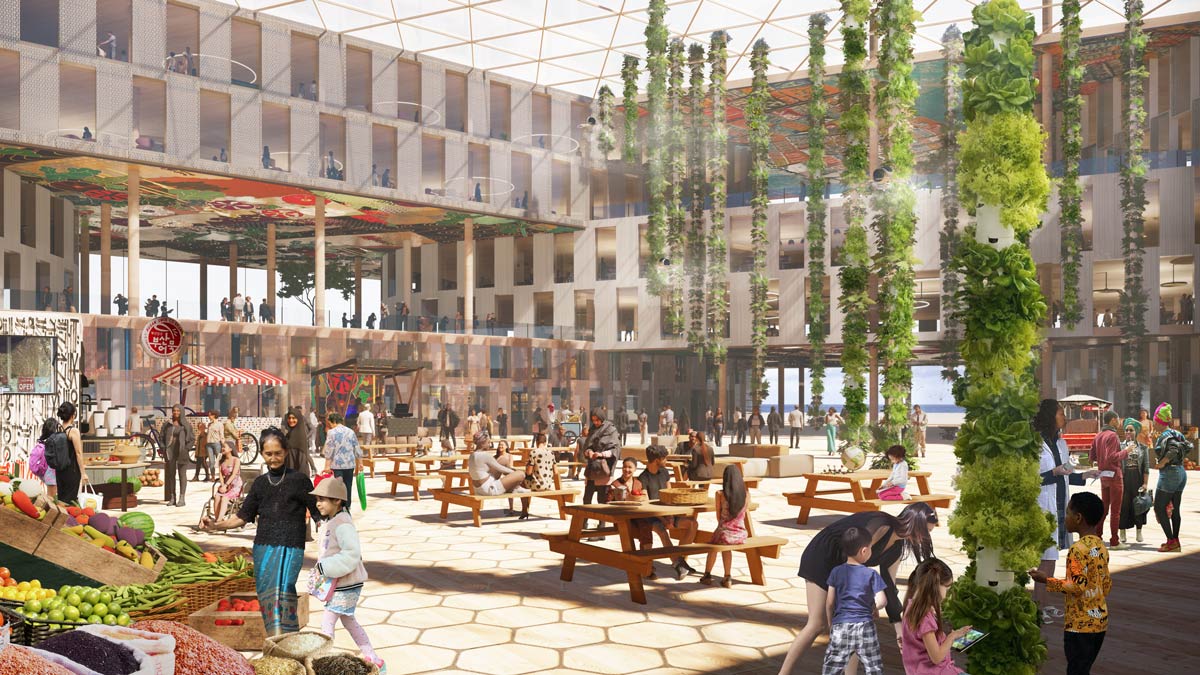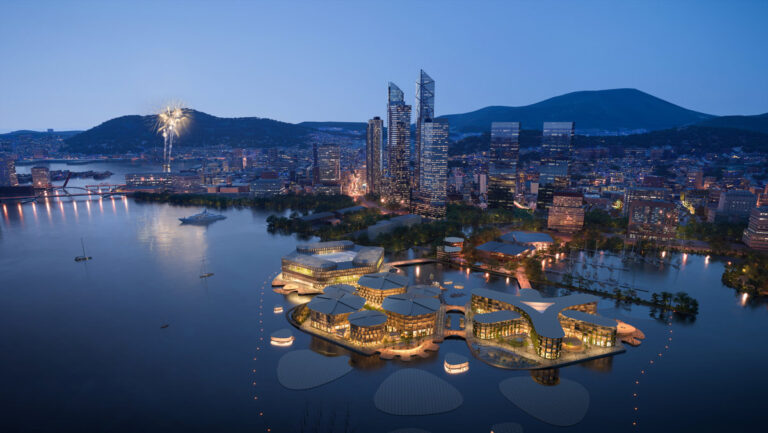South Korea is building a ‘floating city’ to survive rising sea levels
South Korea is set to build a “sustainable floating city” off the coast of major city Busan as early as 2023 in what is being called a “world first.” The goal behind this endeavour is yet another step in utilising breakthrough technologies to combat the continuous threats of climate change.
The project, which presented its prototype renderings at a United Nations (UN) roundtable on Tuesday 26 April, is a partnership made up by OCEANIX (a blue tech company based in New York), the city of Busan—the second largest city in South Korea—and the UN-Habitat ‘Human Settlement Programme’. The UN’s role appears purely advisory at this stage but will later set to work on collecting data on how the city operates.
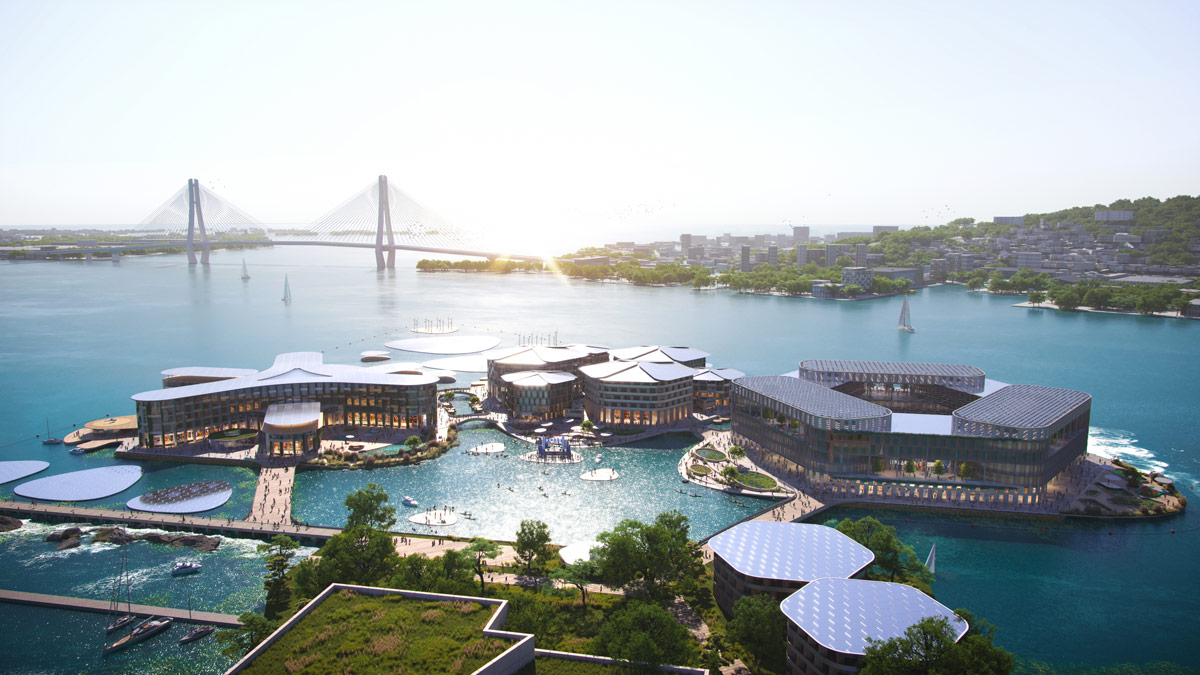
“As Mayor of the Metropolitan City of Busan, I take seriously our commitment to the credo ‘The First to the Future’. We joined forces with UN-Habitat and OCEANIX to be the first to prototype and scale this audacious idea because our common future is at stake in the face of sea level rise and its devastating impact on coastal cities,” said Mayor Park Heong-joon in a press release.
The city is expected to be the first test in an evolving strategy towards real estate development in its sustainable and ‘survivable’ structural foundations—in simpler terms, being able to withstand continuously changing environmental conditions. Rendered imagery of what the metropolis is expected to look like shows various buildings on floating platforms, all linked to each other (as well as to the mainland) via a number of connecting bridges. The founding concept is that, as sea levels shift, so will the platforms. But, that’s not all—the city is expected to be fully sustainable.
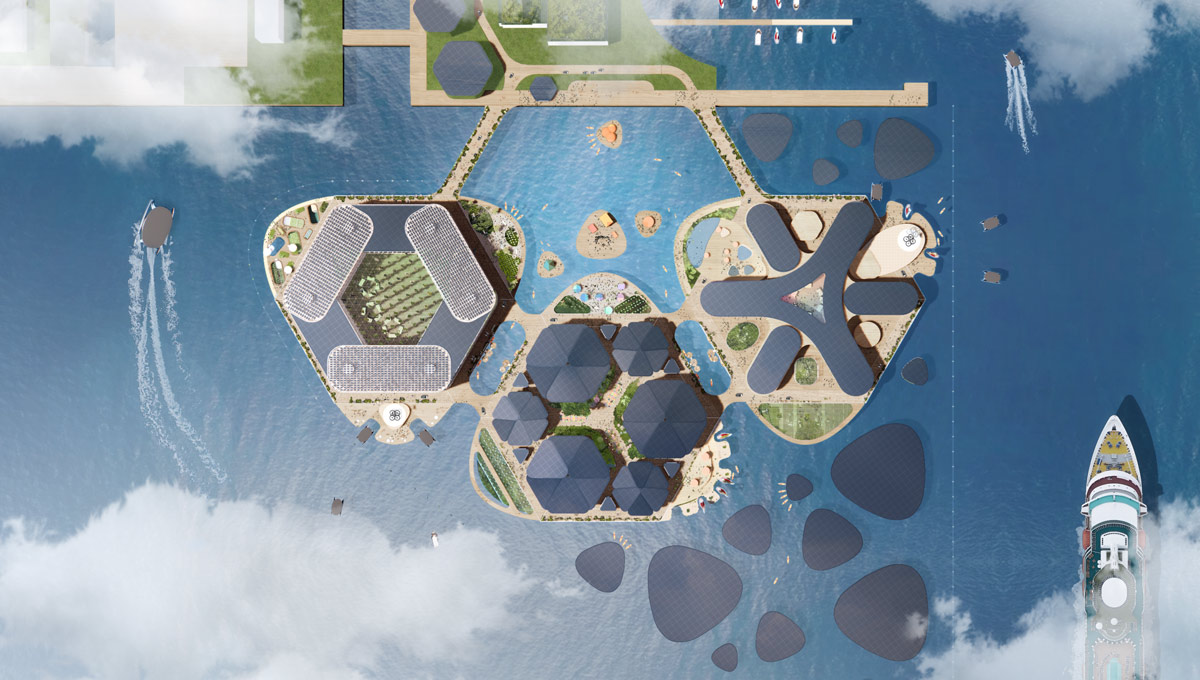
“Meetings like this one are not empty talk,” Maimunah Mohd Sharif, executive director of the Human Settlements Programme, said in a statement on Tuesday. “Three years ago at our first roundtable, everyone wondered when they might visit a floating city or see its revolutionary architecture, experience its zero-waste environment, sample its home-grown produce and enjoy a new way of living sustainably with nature. We now have the answer. Plans are in place.”
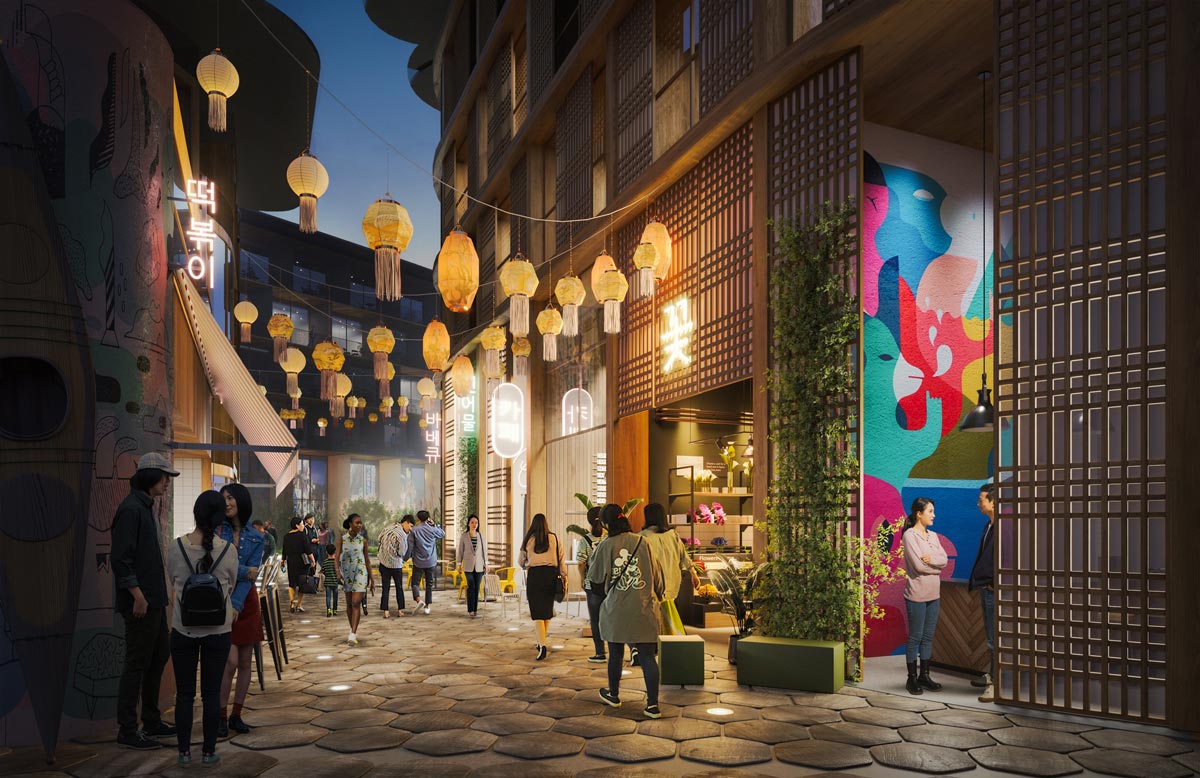
As part of the press release, project organisers claimed that the city would be able to first host 12,000 people with potential expansion possible in future for a capacity of 100,000. Completely self-reliant, the floating city will be able to generate 100 per cent of necessary operational energy with its six integrated systems—zero waste and circular systems, closed loop water systems, food, net zero energy, innovative mobility, and coastal habitat regeneration—via both rooftop and floating solar panels.
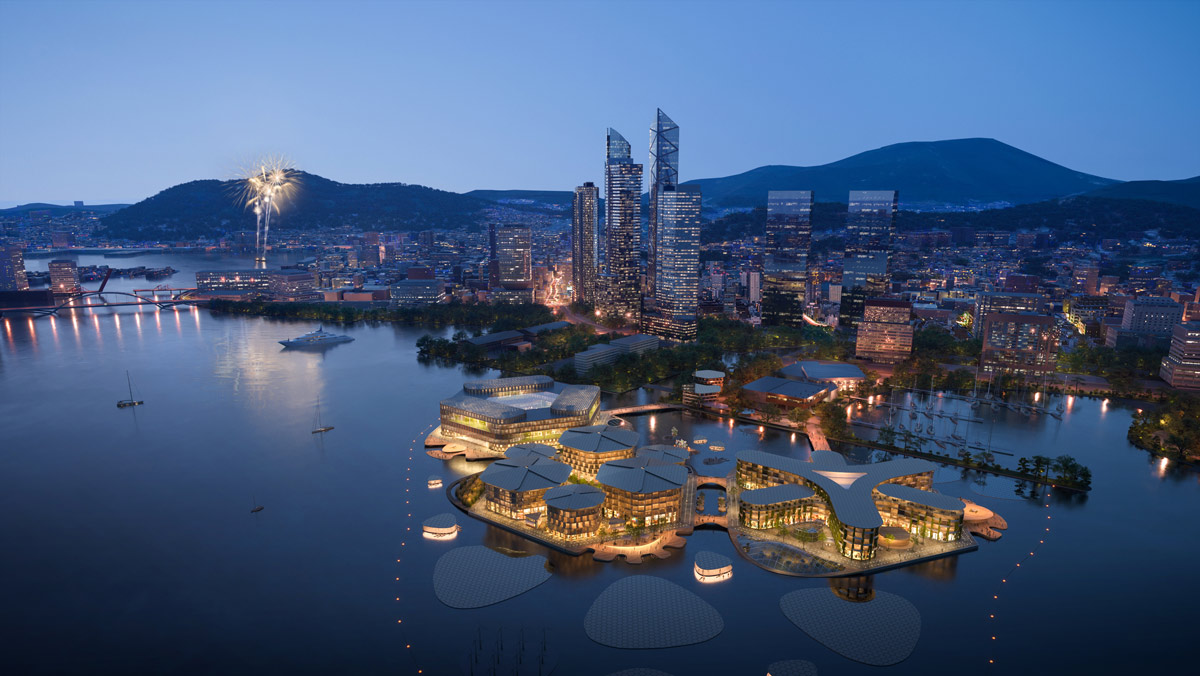
Described as “innovative urban agriculture,” mock-ups of the city show large open spaces filled with greenery, public seating and art. “Similarly, each neighbourhood will treat and replenish its own water, reduce and recycle resources, and provide innovative urban agriculture,” the press release continued. There won’t be any traditional modes of transportation as residents and visitors alike would be required to travel by bicycle or on foot.
